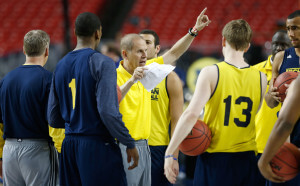
Related Resource: What Types of Jobs Are There In Sports Medicine?
The Big Names: A Great Place to Land a Long-Term Career
At big-name schools, like Penn State, Ole Miss, and the University of Southern California, sports management graduates will find the largest number of opportunities and the most diversity of potential career paths. These programs use sports management graduates in positions that include sports marketing, recruitment of top athletic talent, financial management of various sports programs or scholarship efforts, and even the creation of new athletic programs beneficial to the school’s long-term financial and athletic goals. These positions often pay an excellent salary to competent managers, and they might provide the connections necessary to advance into the professional leagues at a future date. By overseeing every aspect, from the financial and logistical to school talent and marketing, professionals can have a real impact on the bottom line and long-term achievement.
Division I and Division II Schools Offer Unique Challenges
Not every college athletic program is as big as Penn State football or Syracuse basketball. Indeed, far more colleges and universities exist outside of the Division I sphere of influence. Despite their smaller size, these schools still require professional guidance of their athletic programs so that they can draw the top athletic and academic talent to their stadiums and sports complexes. Smaller schools don’t have scholarship programs to work with, in many cases, which allows sports management professionals to be a bit more creative as they determine ways to fund the program and market it to the best athletes nationwide.
Smaller schools may not provide as extensive a professional network, but they are typically more likely to promote managers from within. This means that smaller schools are fertile ground for a long and rewarding career among a smaller, more tight-knit group of professionals. With greater student-staff interaction, programs of this size will also be more personally fulfilling. Everything from accounting and logistics to program marketing and design are available at these schools, just as they are at larger programs across the country.
Public Policy and Advisory Jobs Are Also an Option
Outside of colleges and universities themselves, many sports managers find that their skills fit nicely with public agencies that oversee school finances and or general sports safety, according to Forbes. This opens the door to interesting lobbying jobs in state governments or in federal agencies, and it allows the sports manager to spend their time advocating for their favorite college sports, the safety interests of their favorite professional athletes, or new financial regulations that can benefit athletic competition and talent acquisition across all sectors of the industry.
Related Resource: Sports Massage Therapist
Great Opportunities Across the Board
College sports teams are growing faster than ever in the public consciousness, and that means that sports management professionals have a large number of ways to enter the industry and guide a program to success. Whether it’s working with the schools directly or in a public advocacy role, applicants will find many exciting sports management degree jobs available in college athletics.
Related Articles: